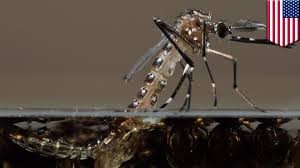Scientists created genetically modified mosquitoes to stop the spread of malaria in humans. The study utilized a controversial technology on genetic modification.
According to The Guardian, there are hundreds of genetically modified mosquitoes created by scientists to help stop the spread of malaria to people. Reportedly, these mosquitoes could not spread the disease unlike the normal types.
The publication also revealed that the move is part of the development of a powerful controversial technology called "gene drive" that deals with solutions to combat the spread of malaria through introducing anti-malarial genes in wild mosquitoes.
The mosquitoes carry anti-bodies that target particularly the human malaria parasite - Plasmodium falciparum. In case these two different insects breed, it would pass on the anti-malarial genes to their offspring. As a result, there would be an increase in the population of anti-malarial mosquitoes.
The same publication established that there would be a massive and fast transformation of the genetic makeup of the nature mosquito populations making it an effective tool to oppose the malarial spread and help over 400000 lives annually.
With this breakthrough, it is believed that the process can serve effectively to fight other human diseases in addition to infections that affect crops.
According to Irvine Professor Anthony James from the University of California, "This is a significant step. The mosquitoes we created are not the final brand, but we know this technology allows us to efficiently create large populations."
James' team used a genome editing process "Crispr-Cas9" to write the anti-malarial genes into the DNA of mosquito eggs belonging to Anopheles stephensi.
The team worked closely with Dr. Simon Bullock, a geneticist at the MRC's Laboratory of Molecular Biology in Cambridge, to perfect the use of the genome editing procedure.
While the technology can create a large influence to fight infectious diseases, there is also a danger that scientists are concerned about. Based on the science journal made by the team in the UK, US, Australia and Japan, this same technology might have an accidental release of modified organisms, which might bring unpredictable consequences.
"Accidental or malicious release of a gene drive system into the wild could have unpredictable ecological consequences and thus researchers must use multiple safeguards that are robust to human error and nefarious actions," Bullock said. "Fortunately, several safeguarding strategies are already available."
Currently, scientists are making sure that experiments are confined in their labs and will only be released on purpose.
Watch the footage for more information on how genetically modified mosquitoes could be used to stop malaria.



























